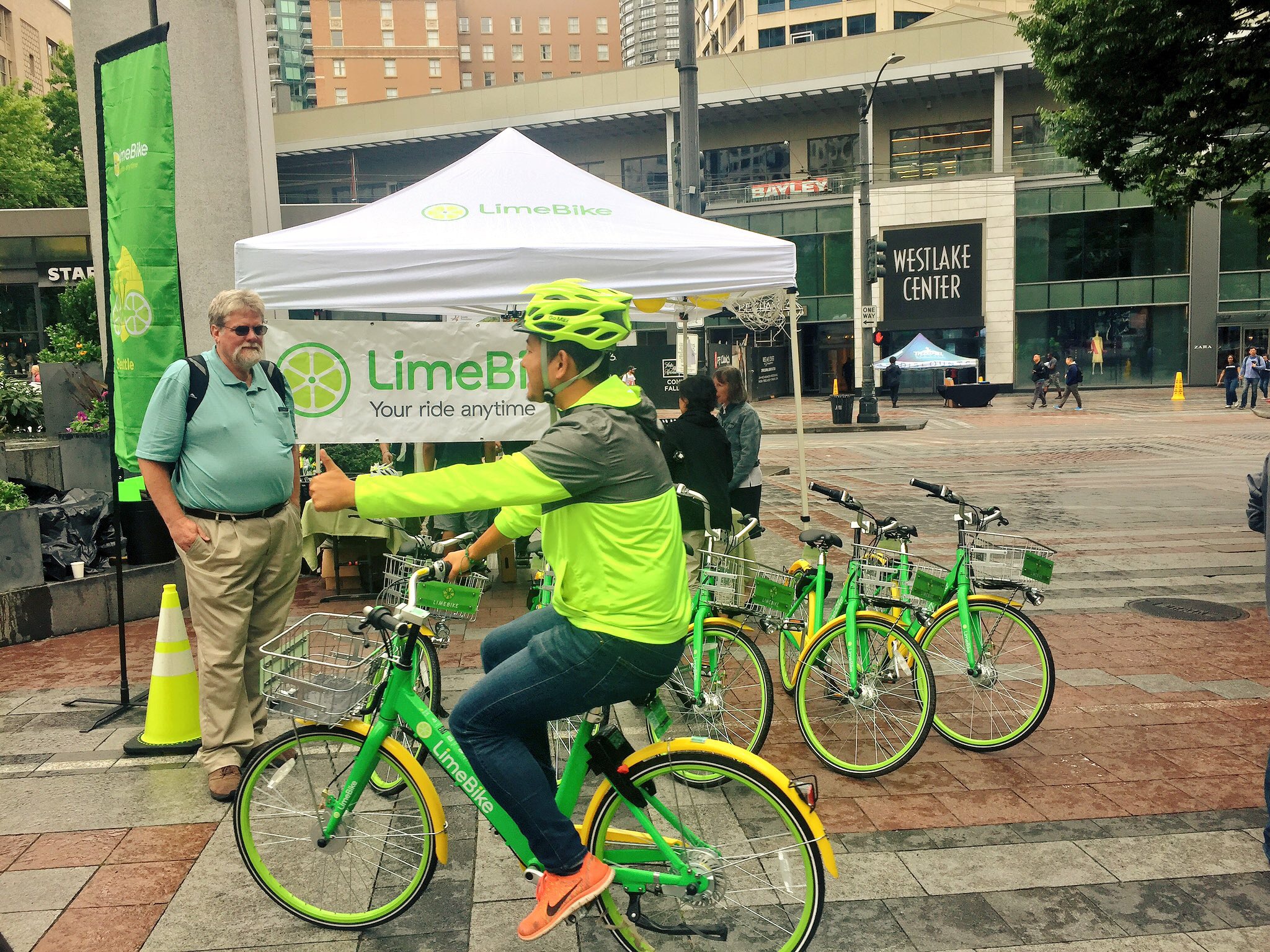Earlier this year, Seattle closed down its publicly-funded bike-share system, Pronto, after it failed to gain significant ridership. With just 50 awkwardly distributed stations, the Pronto network wasn't set up to succeed, and Seattle's mandatory helmet law was also seen as a drag on use.
The failure of public bike-share in Seattle makes it an interesting testing ground for the privately-financed bike-share companies that are trying to make inroads in American cities. Two of those companies -- LimeBike and Spin -- have set up shop in the city, and more are on the way.
There are plenty of questions about whether this new bike-share business model, which is backed by Silicon Valley-style venture capital, will have legs. Will the companies be able to maintain safe bikes, provide good service, and stay financially viable in the long run? It's too soon to say. But in the early going, they are proving that plenty of people will use bike-share in a city where it previously flopped, reports Tom Fucoloro at Seattle Bike Blog:
LimeBike says its first 500 bikes saw “about 10,000 rides” in their first week of action. When added to Spin’s total the same week, Seattle’s 1,000 bike share bikes likely quadrupled Pronto’s best week ever and surpassed even Portland’s Biketown in its first week of operations in July 2016 with the same number of bikes.
This is a big deal because Portland has significantly higher biking rates, many more miles of connected bike infrastructure and is much less hilly than Seattle. So if the same number of bikes is doing the same or better here compared to there, that’s eye-opening.
Spin declined to give us a ride count for the same week, but CEO Derrick Ko said that combined with LimeBike’s reported total, the two companies “significantly bested” Biketown’s opening week ride count of 13,402.
The days of comparing these new bike share systems to Pronto are already over. We’re in all-new territory for West Coast bike share. Because unlike Biketown, the bike share companies in Seattle are not stopping at 1,000. Starting Monday, Spin and LimeBike started rolling out their next 500 bikes each. Both companies say they are adding bikes gradually all week, so Seattle’s bike share total should be up to 2,000 in a couple days.
Two more companies, VBikes and ofo, have also submitted permits to operate in Seattle and could add 1,000 each if approved. And in one month, companies will be able to increase their bike counts to 2,000 each. Then in October, caps will be lifted. That’s really the start of stage two for this new private bike share experiment in Seattle: The search for the magic number of bikes needed to best serve our city (and, of course, win riders and make money).
It's worth noting that in this promotional phase, some rides were given away for free. The real test of these systems and their staying power hasn't come yet.
More recommended reading today: The Dallas Morning News says the arrival of bike-share companies in Dallas should compel the city to implement long-delayed bike infrastructure improvements. And TransitCenter reports on Los Angeles Metro's strategy to reverse declining bus ridership.






